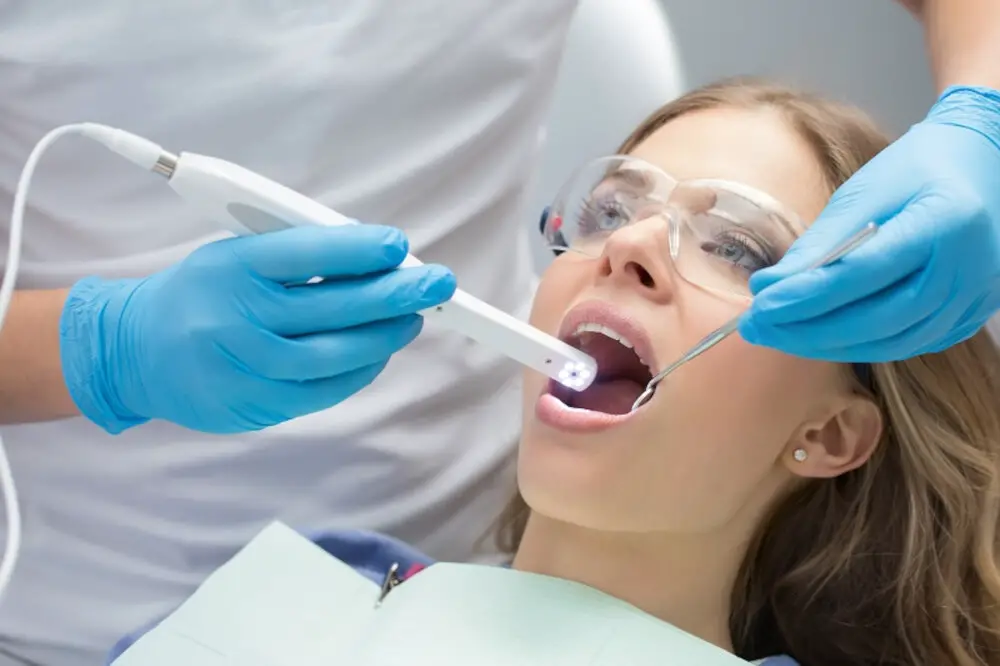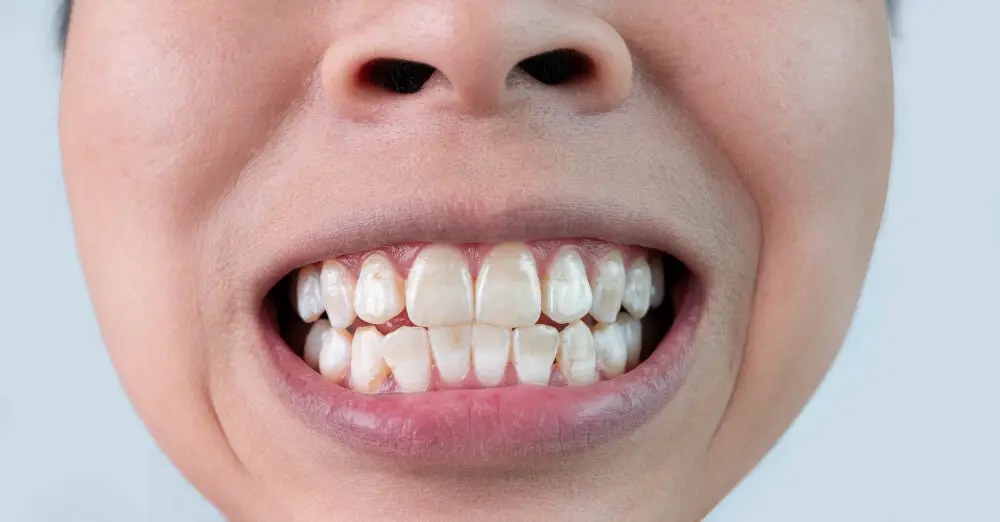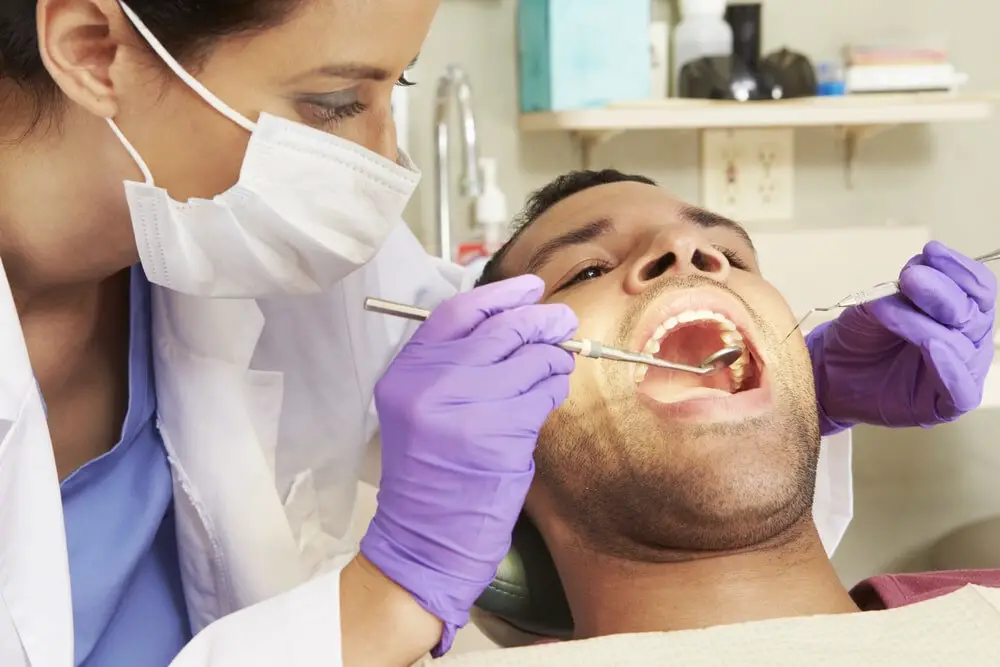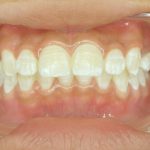Why Wisdom Teeth Removal Causes Sore Throat: Explained

Wisdom teeth, also known as third molars, are the last set of teeth to emerge in the back of your mouth. They typically appear during your late teens or early twenties, and for some people, they can cause a range of issues, including sore throat. Wisdom teeth removal is a common dental procedure that involves the extraction of one or more of these teeth, and it’s often recommended to prevent future pain and discomfort. However, many people are surprised to find that they experience a sore throat after wisdom teeth removal, and they may wonder why this is happening. The connection between wisdom teeth removal and sore throat is not immediately apparent, but it’s a common side effect of the procedure. There are several reasons why this happens, including the proximity of the wisdom teeth to the throat and the inflammation that can occur after the extraction. Understanding the causes of sore throat after wisdom teeth removal can help you prepare for the recovery process and alleviate any discomfort you may experience. In this article, we’ll explore why wisdom teeth removal causes sore throat and what you can do to manage this side effect.
Wisdom teeth, also known as third molars, are the last set of teeth to emerge in the back of the mouth, usually between the ages of 17 and 25. They were necessary for our ancestors who had larger jaws and needed the extra molars to grind down tough, uncooked food. However, as we evolved, our jaws became smaller leaving little or no room for the wisdom teeth to grow in properly. This can result in impacted teeth, where the wisdom tooth is trapped under the gum line and unable to emerge fully. Impacted wisdom teeth can cause a range of problems including infection, damage to adjacent teeth, and even cysts or tumors. As a result, many dentists recommend the removal of wisdom teeth as a preventative measure.
Wisdom teeth are the third molars that typically appear in the late teenage years or early adulthood. While not everyone needs their wisdom teeth removed, it is a common procedure for those who experience problems such as overcrowding, impaction, infection, or decay. Wisdom teeth removal is important because it can prevent these issues from worsening and causing more significant health problems in the future. If left untreated, impacted wisdom teeth can lead to cysts, gum disease, and even damage to nearby teeth and nerves. In addition, removing wisdom teeth can also help maintain the alignment of your other teeth and prevent future orthodontic problems. While the procedure can cause some temporary discomfort, the benefits of wisdom teeth removal far outweigh the risks and potential complications.
Anatomy of Wisdom Teeth

The wisdom teeth, also known as third molars, are the last set of teeth to emerge in the human mouth. They usually appear between the ages of 17 and 25, and each person can have up to four wisdom teeth. However, some people may not develop any wisdom teeth at all. Wisdom teeth are located at the back of the mouth, behind the second molars, and they can cause various dental problems if they do not grow properly. The anatomy of wisdom teeth is similar to that of other teeth, but they are larger and have a different shape. Wisdom teeth have a crown, which is the visible part of the tooth that sits above the gum line, and a root, which is the part that is embedded in the jawbone. The crown of a wisdom tooth is typically wider than the root, which can make it difficult to emerge properly. In some cases, the wisdom teeth may be impacted, meaning they are partially or fully trapped beneath the gum line and cannot fully emerge. This can cause pain, infection, and other dental problems, which is why many dentists recommend removing wisdom teeth as a preventive measure.
Wisdom teeth, also known as third molars, are the last set of teeth to emerge in the back of the mouth. They usually develop between the ages of 17 and 25. The structure of wisdom teeth includes a crown, which is the visible part of the tooth that sits above the gum line, and roots that anchor the tooth in the jawbone. The crown is covered in enamel, the hardest substance in the body, and is designed to grind and rip tough food. The roots of wisdom teeth can be quite long and can extend deep into the jawbone. This complex structure makes wisdom teeth difficult to remove and can cause soreness in the throat and mouth during the healing process.
The location of wisdom teeth in the mouth is at the back of the jaw, behind the second molars. Due to their position, they can cause discomfort and pain, especially when they don’t have enough room to emerge or grow properly. The pressure from wisdom teeth can also affect the neighboring tissues, including the throat, leading to soreness and inflammation. Additionally, the wisdom teeth’s location makes them challenging to clean, making them more prone to decay and infection, which can further exacerbate the discomfort and throat soreness. Therefore, removing wisdom teeth is a common solution to prevent or alleviate these issues.
Wisdom Teeth Removal Procedure

Wisdom teeth are the third molars that grow in the back of your mouth, and they usually erupt between the ages of 17 and 25. However, not everyone develops wisdom teeth, and some people may have more than four. In some cases, wisdom teeth can cause problems, such as overcrowding, infection, and impaction, which is when the teeth don’t fully emerge from the gums. When wisdom teeth cause problems, they may need to be extracted. The wisdom teeth removal procedure is a surgical procedure that involves removing one or more wisdom teeth. The wisdom teeth removal procedure is typically performed by a dentist or oral surgeon. Before the procedure, the patient is given local anesthesia to numb the area around the tooth. In some cases, the patient may also be given sedation to help them relax and feel more comfortable during the procedure. The dentist or oral surgeon will then make an incision in the gum tissue to expose the tooth and bone. They will then remove the tooth and clean the area to ensure that no debris or bacteria are left behind. After the procedure, the patient will be given instructions on how to care for their mouth and how to manage any discomfort or swelling.
The surgical procedure for removing wisdom teeth, also known as third molars, involves making an incision in the gum tissue to access the tooth and the surrounding bone. The tooth may need to be divided into smaller pieces for easier removal. Once the tooth is removed, the gum tissue is stitched back together. This surgical procedure can cause sore throat due to the proximity of the surgical site to the throat. The swelling and inflammation that occur as a natural part of the healing process can also contribute to soreness and discomfort in the throat. Additionally, the use of anesthesia and other medications during the procedure can dry out the throat and cause irritation. It is important to follow post-operative instructions and take any prescribed medications to minimize discomfort and promote healing.
There are several types of anesthesia used for wisdom teeth removal surgery, including local anesthesia, general anesthesia, and conscious sedation. Local anesthesia involves numbing only the area around the tooth being extracted, while general anesthesia puts the patient to sleep and eliminates all pain sensations. Conscious sedation is a combination of local anesthesia and a sedative that helps the patient relax and feel comfortable during the procedure. The type of anesthesia used depends on the patient’s medical history, the complexity of the surgery, and the patient’s preference. The dentist or oral surgeon will discuss the options with the patient before the surgery to ensure the best possible outcome.
Causes of Sore Throat After Wisdom Teeth Removal

Wisdom teeth removal is a common dental procedure that involves the extraction of third molars located at the back of the mouth. While the procedure can effectively prevent dental problems, it can also lead to discomfort and pain, particularly a sore throat. The pain in the throat may occur due to various reasons, including the use of anesthesia, the extraction process, and postoperative care. Anesthesia can cause a sore throat as it is administered through the mouth and can irritate the throat lining, leading to inflammation. Additionally, the extraction process can cause trauma to the surrounding tissues, including the throat, leading to pain and soreness. The pain may also occur due to postoperative care, such as spitting, coughing, or sneezing, which can place pressure on the throat and cause discomfort. Another reason why wisdom teeth removal causes a sore throat is the swelling that occurs after the procedure. The extraction process can cause inflammation in the mouth and the surrounding tissues, leading to swelling, which can extend to the throat, causing pain and soreness. Swelling can also obstruct the airways, making it difficult to breathe, particularly when lying down. Additionally, the swelling can lead to the accumulation of fluids in the throat, which can cause irritation and discomfort. In some cases, the sore throat may also be a result of infection, which can occur due to poor oral hygiene or the presence of bacteria in the mouth. An infection can cause inflammation and pain in the throat, leading to discomfort and difficulty swallowing.
Swelling and inflammation in the throat can be a painful and uncomfortable experience. It can be caused by a variety of factors such as infection, allergies, or even the removal of wisdom teeth. When wisdom teeth are removed, the procedure can cause trauma to the surrounding tissues and muscles, leading to inflammation and swelling. This can result in a sore throat, difficulty swallowing, and discomfort when speaking. It’s important to rest and take steps to reduce the inflammation, such as applying ice packs or gargling with salt water. If the symptoms persist, it’s best to consult a medical professional for further advice and treatment.
One of the most common complications that patients experience after a wisdom teeth removal surgery is a sore throat, which can be caused by the breathing tube used during anesthesia. The irritation of the throat can occur due to the pressure and friction caused by the tube, leading to inflammation and discomfort. Although the breathing tube is necessary to keep the patient’s airway open and maintain oxygen levels during the procedure, it can leave the throat feeling raw and sore in the aftermath. While the sore throat is usually temporary and self-limited, it can be managed with over-the-counter pain relief medications, throat lozenges, or warm salt water gargles.
Tips for Relieving Sore Throat After Wisdom Teeth Removal

Wisdom teeth removal is a common dental procedure that many people undergo. However, it can often lead to a sore throat due to the proximity of the surgical site to the throat. The pain can be quite uncomfortable and can make it difficult to eat, drink, or even speak. Fortunately, there are several tips that can help relieve the sore throat after wisdom teeth removal. One of the most effective ways to ease the pain is by using ice packs. Applying an ice pack to the outside of the throat can help reduce swelling, numb the pain, and provide a soothing sensation. It is recommended to use ice packs for 15-20 minutes at a time, several times a day. It is important to note that the ice pack should not be placed directly on the skin, but rather wrapped in a cloth or towel to prevent skin damage. Another effective way to soothe a sore throat after wisdom teeth removal is by gargling with salt water. Salt water helps to reduce inflammation and kill bacteria in the mouth and throat. To make a salt water solution, mix one teaspoon of salt in a glass of warm water and gargle for 30 seconds before spitting it out. This can be repeated several times a day to help relieve the pain and discomfort. Additionally, it is important to stay hydrated by drinking plenty of water and avoiding caffeine and alcohol, which can cause dehydration and worsen the sore throat. By following these tips, individuals can effectively manage the pain and discomfort associated with a sore throat after wisdom teeth removal.
Gargling with salt water is a simple yet effective remedy for a sore throat caused by wisdom teeth removal. Salt water helps to reduce inflammation and kill bacteria in the throat, which can help to alleviate discomfort and promote healing. To make a salt water solution, mix a teaspoon of salt with a cup of warm water and gargle for 30 seconds, then spit out the solution. Repeat this process several times a day for best results. Gargling with salt water is a natural and safe way to soothe a sore throat and can be done alongside other remedies such as pain medication and rest.
After having your wisdom teeth removed, it is common to experience a sore throat due to the proximity of the surgical site to the throat. To alleviate this discomfort, over-the-counter pain medications such as ibuprofen or acetaminophen can be taken. These medications work to reduce inflammation and block pain signals to the brain, providing relief for aching muscles and sore throat. It is important to follow the recommended dosage and not exceed the maximum amount allowed per day to avoid potential side effects. Additionally, consulting with a healthcare provider before taking any medication is crucial to ensure it is safe and appropriate for your individual situation.
Drinking plenty of fluids is essential when it comes to recovering from wisdom teeth removal. After the surgery, the patient’s body requires a lot of water and other fluids to replace the lost fluids due to bleeding and to prevent dehydration. Additionally, drinking fluids also helps to soothe the sore throat caused by the removal procedure. It is recommended to drink water, fruit juices, and clear broths to stay hydrated and to avoid carbonated or sugary drinks that can irritate the throat. Drinking plenty of fluids not only speeds up the recovery process but also helps to prevent complications such as dry socket, which can occur when there is a lack of proper hydration.
In the article titled \Why Wisdom Teeth Removal Causes Sore Throat Explained,\ the author provides a detailed explanation of the reasons behind the sore throat experienced by many people after undergoing wisdom teeth removal. The article highlights how the surgical procedure can cause irritation and inflammation in the throat due to the use of tools and equipment during surgery, as well as the presence of blood and other fluids in the mouth. Additionally, the article suggests various ways individuals can manage the discomfort and pain associated with a sore throat after wisdom teeth removal, such as staying hydrated, avoiding spicy or acidic foods, and taking over-the-counter pain medications. Overall, the article presents an informative and insightful analysis of the causes and remedies for sore throat after wisdom teeth removal.
Following postoperative instructions is crucial after any surgical procedure, including wisdom teeth removal. These instructions are designed to help promote proper healing and prevent complications. Failure to follow these instructions can lead to a range of issues, including infection, excessive bleeding, and delayed healing. One of the most important instructions to follow after wisdom teeth removal is to avoid any strenuous activity or exercise for several days. This will help minimize swelling and prevent the formation of a dry socket, which can be extremely painful. Additionally, it is essential to maintain good oral hygiene by gently brushing your teeth and rinsing your mouth with saltwater. By following your dentist’s postoperative instructions carefully, you can ensure a smooth and speedy recovery and minimize the risk of complications.
If you are experiencing excessive pain or bleeding after wisdom teeth removal, it is highly encouraged to contact a dentist immediately. While some amount of discomfort is normal after the procedure, excessive pain or bleeding can indicate a serious issue that needs to be addressed promptly. Ignoring these symptoms can lead to more severe complications, such as infection or damage to surrounding teeth. Don’t hesitate to reach out to a dental professional, as they have the expertise and tools to diagnose and treat any issues that may arise. Taking action quickly can ensure a smoother and more comfortable recovery process.
Conclusion

In conclusion, the connection between wisdom teeth removal and sore throat is undeniable. The extraction process can cause inflammation and irritation to the surrounding tissues, leading to discomfort and pain in the throat area. However, proper aftercare and pain management can help alleviate the symptoms and promote faster healing. It is crucial to follow the dentist’s instructions and take the necessary precautions to avoid complications and ensure a successful recovery. Overall, while the sore throat may be an unpleasant side effect of wisdom teeth removal, it is a small price to pay for the long-term benefits of having healthy and aligned teeth.







